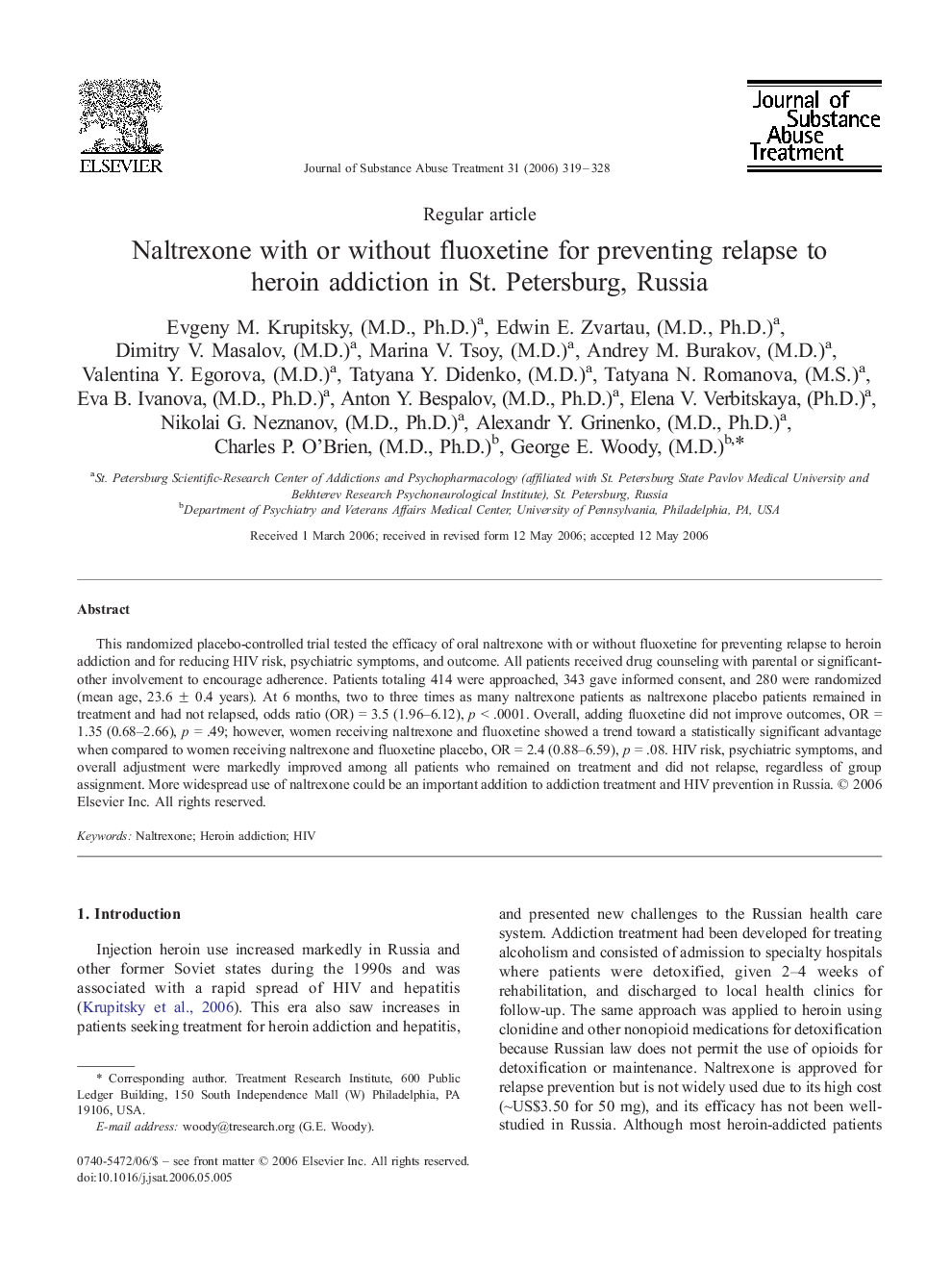| Article ID | Journal | Published Year | Pages | File Type |
|---|---|---|---|---|
| 329385 | Journal of Substance Abuse Treatment | 2006 | 10 Pages |
This randomized placebo-controlled trial tested the efficacy of oral naltrexone with or without fluoxetine for preventing relapse to heroin addiction and for reducing HIV risk, psychiatric symptoms, and outcome. All patients received drug counseling with parental or significant-other involvement to encourage adherence. Patients totaling 414 were approached, 343 gave informed consent, and 280 were randomized (mean age, 23.6 ± 0.4 years). At 6 months, two to three times as many naltrexone patients as naltrexone placebo patients remained in treatment and had not relapsed, odds ratio (OR) = 3.5 (1.96–6.12), p < .0001. Overall, adding fluoxetine did not improve outcomes, OR = 1.35 (0.68–2.66), p = .49; however, women receiving naltrexone and fluoxetine showed a trend toward a statistically significant advantage when compared to women receiving naltrexone and fluoxetine placebo, OR = 2.4 (0.88–6.59), p = .08. HIV risk, psychiatric symptoms, and overall adjustment were markedly improved among all patients who remained on treatment and did not relapse, regardless of group assignment. More widespread use of naltrexone could be an important addition to addiction treatment and HIV prevention in Russia.
